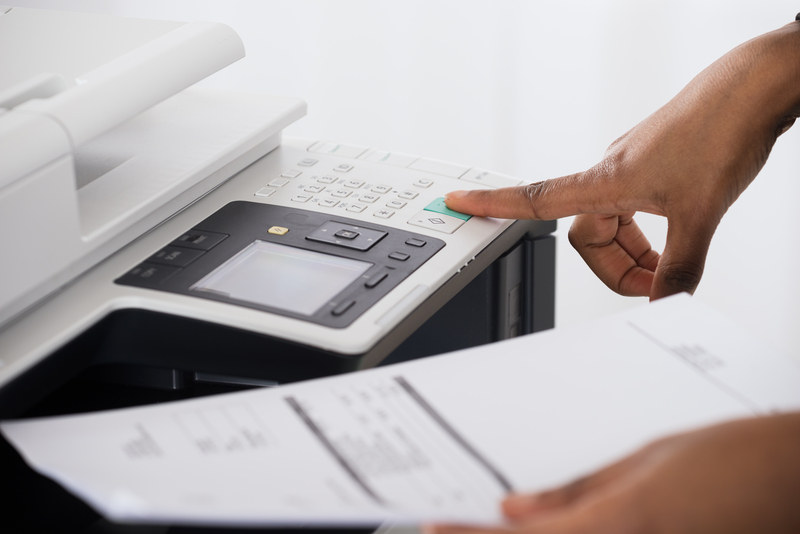Seek Simplicity: The Decluttering and Minimalism Movement
In a world overwhelmed by noise, chaos, and possessions, the call to seek simplicity has never been more relevant. The decluttering and minimalism movement invites us to step back, evaluate, and intentionally design our spaces--and our lives--around what truly matters. In this comprehensive guide, we'll explore the origins, principles, benefits, and practical strategies of this movement, helping you embrace a simpler, fuller life.

Understanding the Minimalism Movement
What Does It Mean to Seek Simplicity?
At its core, the minimalism movement is about living with less so we can enjoy more--more clarity, more freedom, and more meaning. This approach isn't just about having tidy countertops or empty closets, but rather about removing the distractions that prevent us from living intentionally. As we seek simplicity, we become more aware of our consumption habits and how clutter--both physical and mental--affects our well-being.
- Minimalism is the art of decluttering both your environment and mind.
- It encourages intentional living--making conscious choices about what you allow into your life.
- By removing excess, you create space for what's truly important.
The History and Evolution of Minimalism
Minimalism as a design philosophy originated in the early 20th century, especially in art and architecture, with its roots in movements like Bauhaus and Zen Buddhism. However, the contemporary decluttering and minimalism movement goes beyond aesthetics. Its recent popularity can be traced to growing awareness of consumerism's impact on mental health, finances, and the environment.
- Marie Kondo's bestselling book "The Life-Changing Magic of Tidying Up" introduced millions to the joy of decluttering.
- The rise of digital nomads and tiny home enthusiasts spotlighted living with less.
- Minimalist influencers like The Minimalists have championed a life built around value, not objects.
Why Seek Simplicity? The Compelling Benefits of Decluttering
Mental Clarity and Emotional Well-Being
Research suggests that clutter is linked to increased stress, anxiety, and even depression. By embracing the simplification lifestyle, you're not just creating a more organized space--you're making room for mental peace. Studies show that clean, open spaces reduce cortisol levels and elevate mood, allowing us to feel calmer and more productive.
- Decreased stress: Less clutter means fewer visual distractions and mental to-dos.
- Improved focus: Minimalist environments help you concentrate on what matters.
- Emotional freedom: Letting go of unneeded possessions lightens emotional burdens.
Financial Freedom
One of the most significant but often overlooked benefits of the decluttering movement is its impact on your finances. When you adopt a minimalist approach, you become more mindful of your purchases, reduce impulse spending, and can even earn extra cash by selling unused items.
- Lower expenses: You buy less, spend less, and avoid costly storage solutions.
- Extra income: Selling or donating items can help others and fill your wallet.
- Long-term savings: Fewer possessions result in reduced maintenance and replacement costs.
Environmental Impact
The minimalism trend is inherently eco-friendly. When we consume less, we generate less waste, demand fewer resources, and create a smaller carbon footprint.
- Reduce, Reuse, Recycle: Minimalists focus on quality over quantity, leading to less overall waste.
- Sustainable choices: Minimalism encourages thoughtful consumption and eco-friendly habits.
Decluttering vs. Minimalism: What's the Difference?
While the words are often used interchangeably, there are subtle distinctions between decluttering and minimalism.
- Decluttering is the process of removing excess items and organizing your space for function and aesthetics.
- Minimalism is a broader philosophy that influences how you live, work, and even think--extending beyond physical possessions.
Both approaches are about seeking simplicity and removing distractions, but minimalism is the mindset that can guide ongoing decisions.
How to Begin Your Journey to Simplicity
Step 1: Define Your "Why"
Before you begin transforming your space or lifestyle, it's essential to clarify why you want to seek simplicity. Do you crave less stress? Want to save money? Desire a healthier relationship with your environment?
- Write down your reasons for embracing minimalism.
- Set clear intentions--these will guide your decisions and keep you motivated.
Step 2: Start Small and Build Momentum
Overhauling your entire life overnight isn't practical--or sustainable. Start with a single area, such as a drawer, closet, or small room.
- Focus on visible clutter to inspire early wins.
- Commit to short, regular decluttering sessions (10-15 minutes daily).
Step 3: Sort, Evaluate, and Decide
When decluttering, use the simple question: "Does this add value to my life?" If not, it may be time to let it go. You can also follow approaches like Marie Kondo's famous spark joy method or the Four-Box Method (Keep, Donate, Sell, Trash).
Step 4: Set Boundaries and Systems
To maintain a minimalist lifestyle, proactively set boundaries around what enters your home and time.
- Adopt a "one in, one out" rule for possessions.
- Schedule regular decluttering check-ins.
Decluttering Tips for Every Area of Your Life
Minimalist Home: Creating Calm from Chaos
The home is often where we first encounter the positive effects of simplifying. Here are strategies for transforming spaces into sanctuaries of peace:
- Living Room: Keep only functional or beloved items. Limit decor and store remotes and cables out of sight.
- Bedroom: Create a tranquil space by removing excess furniture, clothing, and electronics.
- Kitchen: Retain high-quality, versatile tools. Reduce duplicate or unused appliances.
- Bathroom: Eliminate expired products and streamline toiletries.
Digital Decluttering: Reclaiming Your Focus
Digital clutter can be just as draining as physical mess. Minimalism in the digital realm fosters clarity and efficiency.
- Unsubscribe from unnecessary emails.
- Delete unused apps and organize files into folders.
- Limit notifications to regain mental peace.
Minimalism in Your Schedule
Time decluttering is a powerful but overlooked area of minimalism. Audit your calendar for unnecessary commitments or time-wasting activities.
- Say 'no' more often to protect your most important priorities.
- Batch similar tasks and delegate when possible.
- Allocate time for rest, reflection, and relationships.
The Minimalist Mindset: Beyond Possessions
Minimalism isn't just about what you own--it's about how you think and act. Cultivating a minimalist mindset encourages you to:
- Prioritize experiences over possessions.
- Value relationships and personal growth above status symbols.
- Practice gratitude for what you have, rather than always seeking more.
- Embrace the idea that "enough" truly is enough.
Common Minimalism Misconceptions
- Minimalism is only for the wealthy: In reality, anyone can embrace simplicity on any budget.
- You must own almost nothing: Minimalism is personal. Keep things that genuinely serve you--no need for extremes.
- It's about depriving yourself: Minimalism is about making space for joy, not about scarcity.
Challenges on Your Simplicity Journey and How to Overcome Them
Emotional Attachments
Letting go of sentimental items is difficult. Instead of forcing yourself, honor the memories but remember the object is not the experience. Consider photographing items, or keeping a curated memory box.
Overcoming Consumer Pressure
Advertisements and social media often tempt us with new trends and products. Build awareness of these triggers and practice mindful consumption. Unfollow accounts that promote excess.
Family and Relationships
Not everyone in your family may share your vision for simplicity. Set the example by creating minimalist spaces of your own. Invite, don't impose, the journey of decluttering.
Simplicity and Minimalism in a Modern Context
The Role of Minimalism in the Digital Age
As our lives become increasingly digital, the principles of minimalism are more applicable than ever. Digital minimalism challenges us to use technology with intention--curating not just our possessions, but also our digital lives, social media, and online attention.
Minimalism and Sustainability
Choosing simplicity supports environmental sustainability. By buying less and choosing quality, reusable items, minimalists reduce waste and support companies with ethical practices.
Getting Inspired: Real-Life Minimalist Success Stories
- Joshua Fields Millburn and Ryan Nicodemus shifted from corporate excess to intentional living, chronicling their journey through books, podcasts, and documentaries.
- People downsizing to tiny homes report higher happiness, freedom, and financial stability, thanks to simpler living.
- Families adopting minimalism find themselves with more quality time, less conflict, and deeper connections.

Further Resources for the Decluttering and Minimalism Movement
- Books: "The Life-Changing Magic of Tidying Up" by Marie Kondo; "Essentialism" by Greg McKeown
- Documentaries: "Minimalism: A Documentary About the Important Things" (Netflix)
- Websites and Podcasts: TheMinimalists.com, BecomingMinimalist.com
Conclusion: Embrace the Freedom of a Simpler Life
To seek simplicity is to find freedom: freedom from clutter, distractions, financial burdens, and the relentless pressure to consume. The decluttering and minimalism movement invites us all to rethink what we own, what we chase, and what we truly value. Taking the first steps toward intentional living can lead to a brighter, lighter, and more meaningful life. Start your journey today, and discover the joy of living with less--so you can experience so much more.